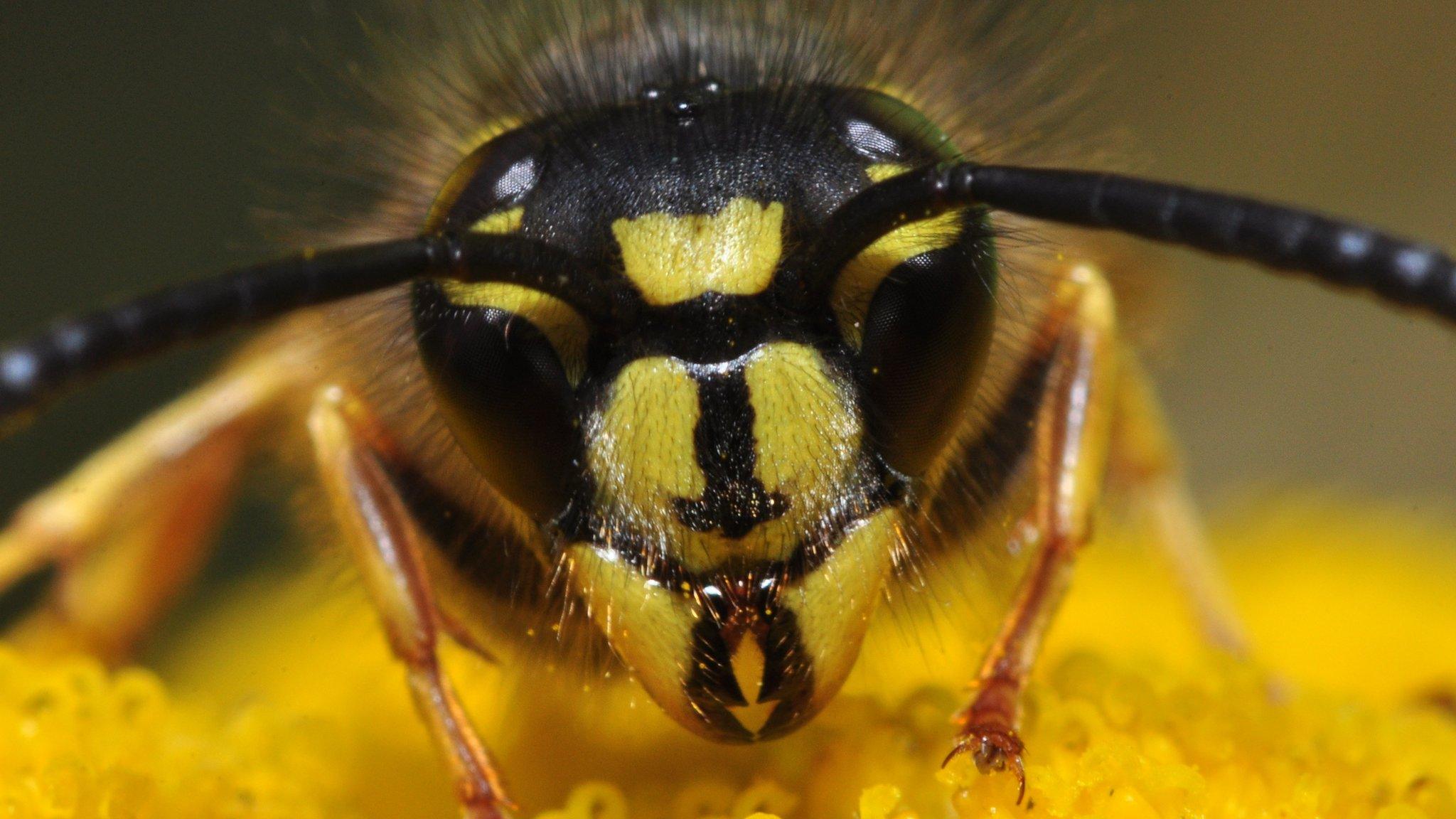Are there more wasps around than usual this year?
- Published
- comments
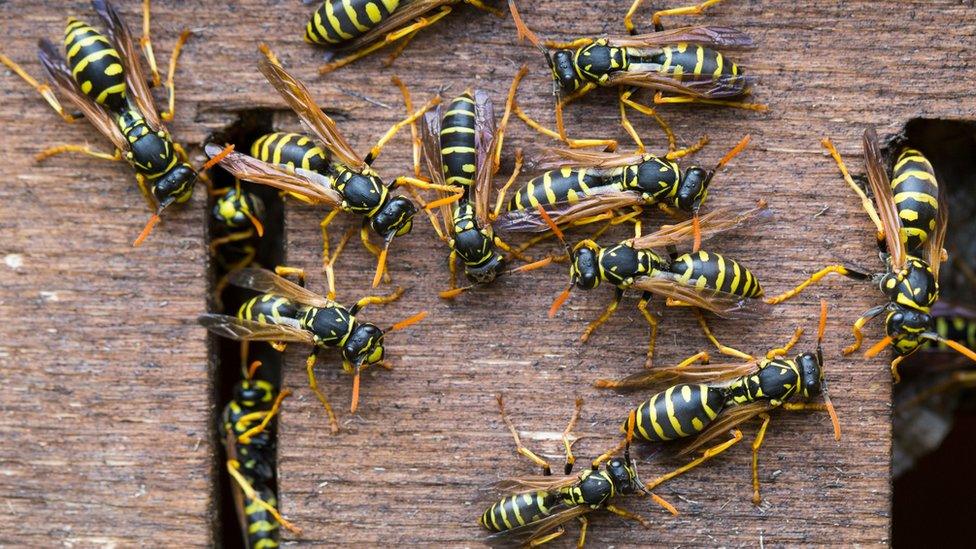
Wasps - they're small, nimble and known for their fierce sting!
People tend to spot the brightly coloured insects more frequently during the warmer months of the year, when out and about in parks, at the seaside or enjoying picnics and barbecues on warm summer days.
Wasps thrive in hot weather and because of the UK heatwave in July, they could be buzzing around for a lot longer.
Have you seen more wasps around recently? Do they bother you? Let us know in the comments below!
When are wasps most likely to sting?
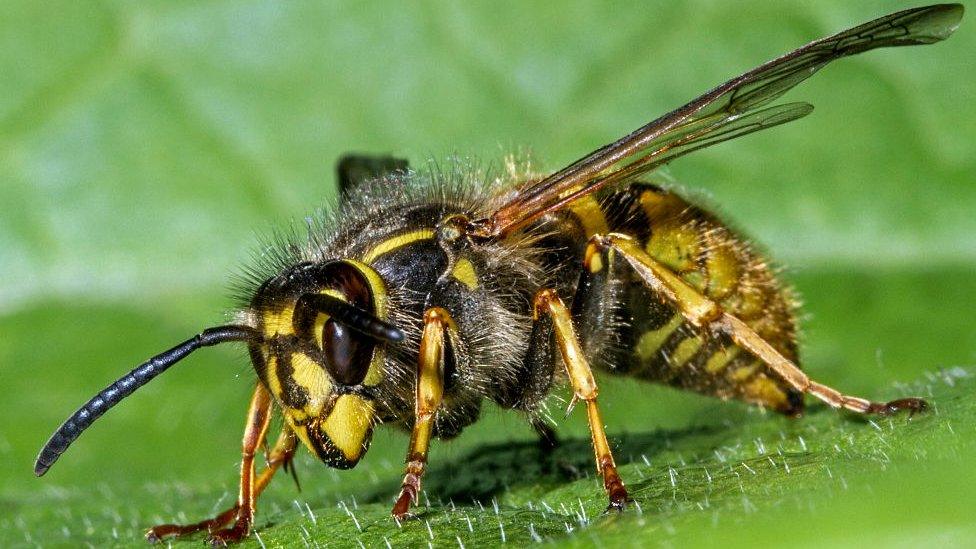
Common wasp (Vespula vulgaris) queen on leaf
Wasps are more likely to sting in late Summer/early Autumn because of the way their colonies - the name given to a collective group of insects that all live together - operate.
The role of the queen wasp, which is the leader of a colony, is to lay eggs for her whole life!
As the eggs hatch, they later become female adult workers and these wasps work together as a team, taking over the building of the nests where they live. They also provide larvae, which are baby wasps, with food.
Wasps are the original inventors of paper! Their nests are made of wood which they chew and mix with their saliva, This forms a paper-like material which they use to build their nests.
Top tips from Buglife: How can you avoid getting stung by a wasp?
"Social wasps are really useful insects. Throughout summer, worker wasps, which are all sisters, work away building up the colony and raising the young," Andrew Whitehouse who works for the charity Buglife told Newsround.
The wasps tend to feed on other insects like crop pests which they use to feed their young. "This helps to maintain an ecological balance," said Andrew.
In return for feeding the young wasps, the larvae give the adult workers a carbohydrate-rich sugary secretion which they love!
As temperatures change, wasps begin to prepare for winter hibernation.
By the end of summer, the worker wasps' job of keeping the young in their colonies well fed is largely done.
Although there are still larvae to feed, less wasps are needed for this job leaving lots of the insects without both work and what once was their frequent sugary fix.
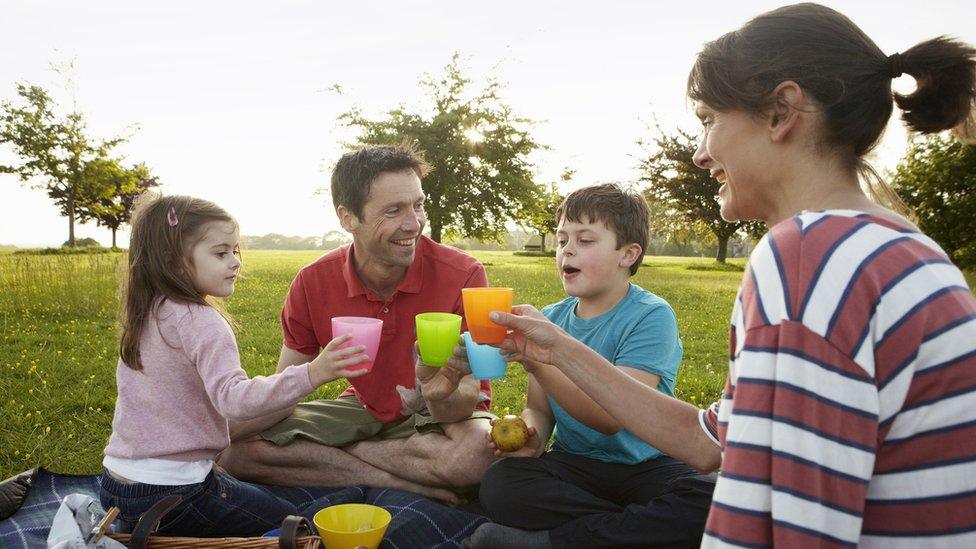
During this time of the year, wasps are attracted to some of the sugary foods and drinks we might have during picnics
This makes them search out sweet foods and drinks so they can get hold of the nutrients they need, and often leads them to sources of sugar away from their colonies like the fizzy drinks and jam sandwiches that many people enjoy drinking and eating during picnics.
"By this point, the queen wasp is tired and wasps tend to come into contact with people more as we like to eat sweet stuff," said Andrew.
The wasps aren't any more aggressive than they usually are, but if people are in close contact with the insects, they may be at a greater risk of being stung.
Another source of sugar wasps may go after comes from flowers. "Wasps pollinate quite a lot of flowers and one flower that wasps particularly like is ivy," Andrew told Newsround.
There are 9000 different types of wasps in the UK alone!
How should you react if you see a wasp?
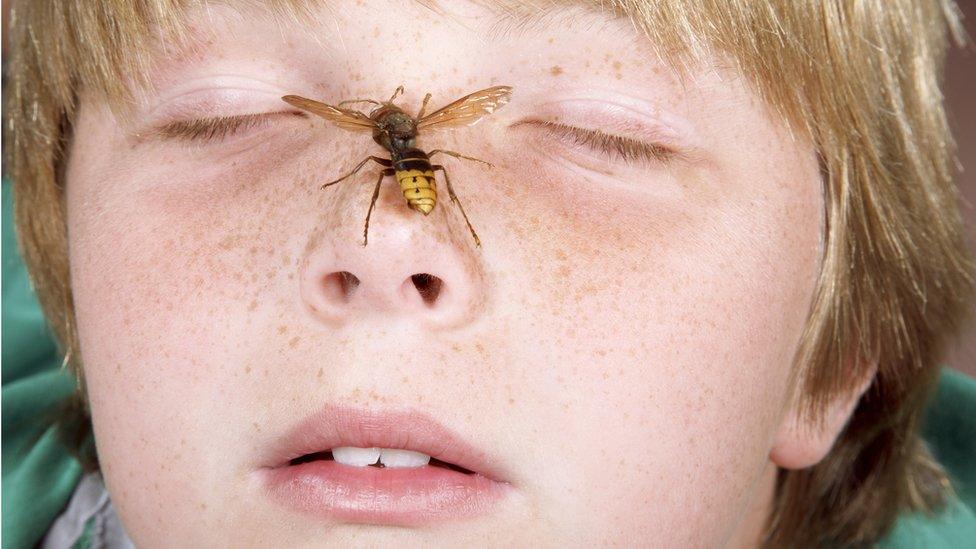
As many wasps are on the look out for sugar, it's important not to put too much sweet stuff out which they'll be attracted to.
"You can also provide a diversion," said Andrew. "Put jam on a plate away from your picnic."
If you do end up coming into contact with one of the insects, it's important not to panic.
"The key thing is, wasps are quite small creatures compared to us," says Andrew. "If you think like a wasp, you'd be scared of humans!
"Stay calm, move slowly and don't swat at wasps."
What should you do if a wasp stings you?
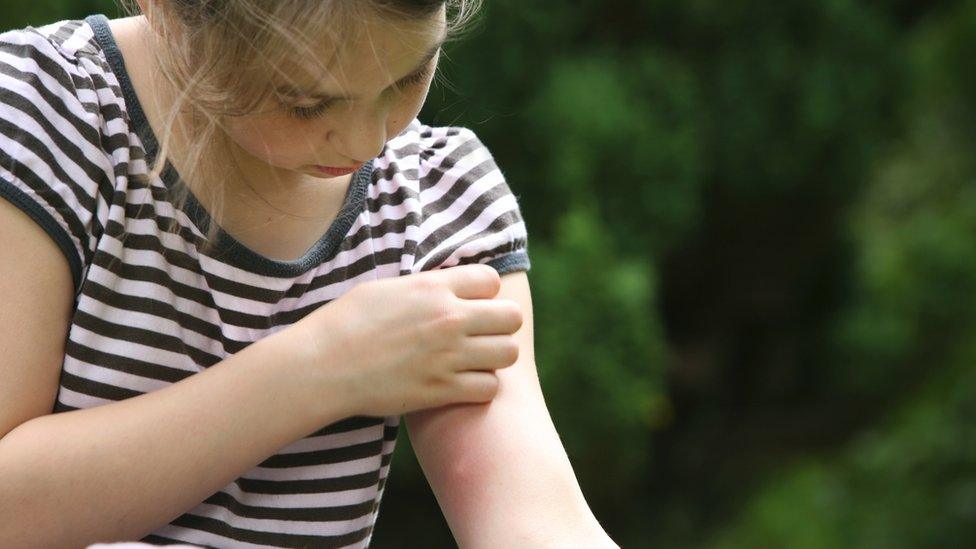
Wasp stings can be very unpleasant! If you are stung by an insect like a wasp tell an adult.
The NHS says you should:
Remove the sting if it's still in the skin
Wash the affected area with soap and water
Apply a cold compress like a flannel or cloth cooled with cold water, or an ice pack to any swelling for at least 10 minutes
Raise or elevate the affected area if possible, as this can help reduce swelling
Avoid scratching the area, to reduce the risk of infection
The majority of people will quickly recover after being stung by a wasp, but some may experience an allergic reaction. If this happens to you, make sure you let a parent or guardian know as quickly as possible so they can seek further medical advice.
Are there any good things about wasps?
What are wasps for? Chris Packham is here to tell you!
Wasps are often given a bit of a bad name, but the insects are actually quite useful!
They hunt down pests which can end up destroying valuable crops like maize and sugarcane and this benefits humans, helping to protect our food supply. Wasps can help reduce the pest population and limit the amount of damage done to the plants overall.
Wasps also pollinate lots of flowers, just like bees do. According to research that came out earlier this year, wasps visit 960 different plant species, helping to spread the plant's populations.
Maybe, wasps aren't so bad after all!
- Published2 May 2021
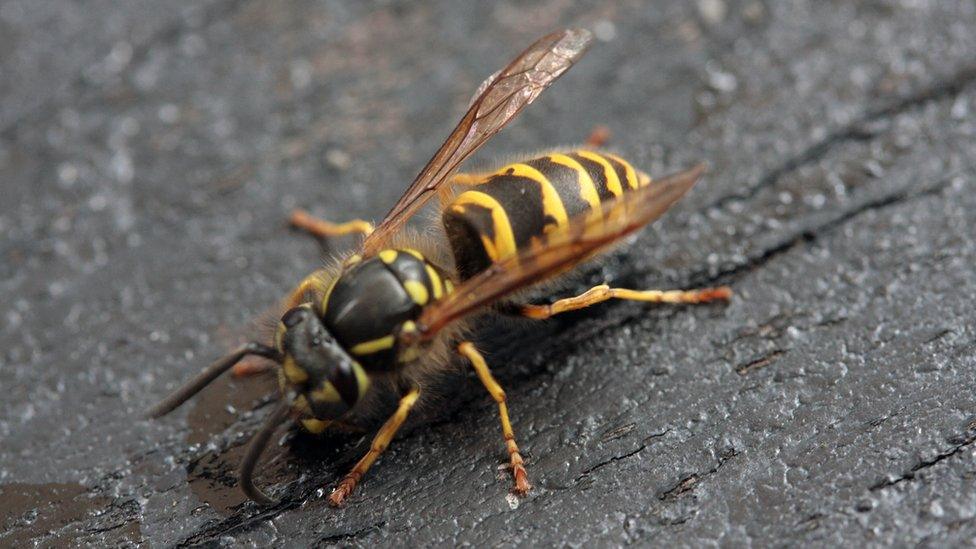
- Published16 February 2021
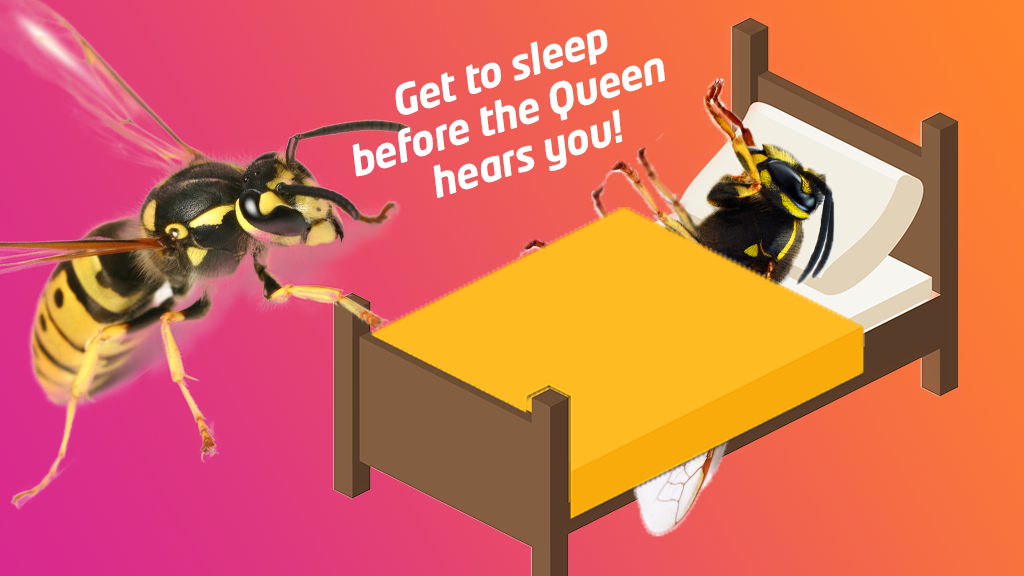
- Published29 August 2018
